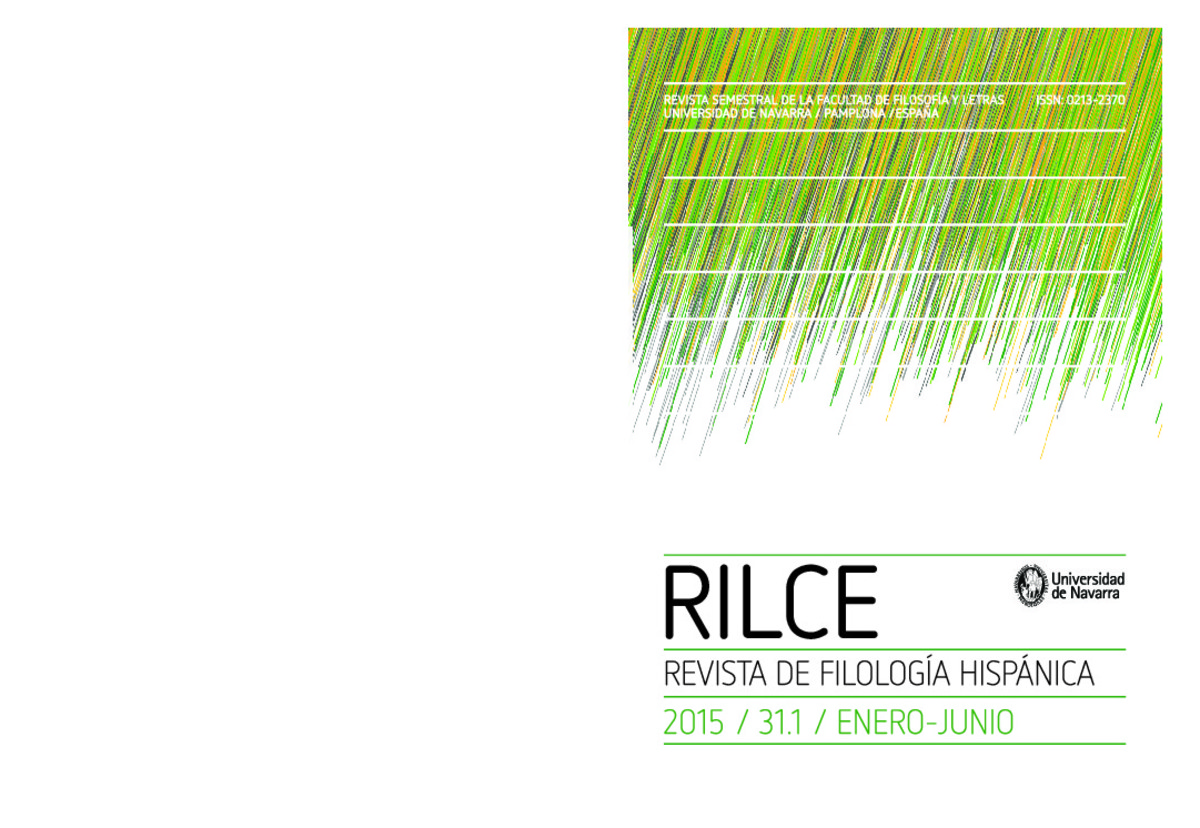Full metadata record
| DC Field | Value | Language |
|---|---|---|
| dc.creator | Crespo, N. (Natalia) | - |
| dc.date.accessioned | 2015-09-24T07:43:35Z | - |
| dc.date.available | 2015-09-24T07:43:35Z | - |
| dc.date.issued | 2015 | - |
| dc.identifier.citation | Crespo, Natalia. (2015). ""Homenaje literario y crítica política en La pasión de los nómades de María Rosa Lojo"", Rilce, vol. 31, n.1, pp. 97-119. | es_ES |
| dc.identifier.issn | 0213-2370 | - |
| dc.identifier.uri | https://hdl.handle.net/10171/39084 | - |
| dc.description.abstract | Este trabajo analiza la relación intertextual entre La pasión de los nómades (1994) de la escritora argentina María Rosa Lojo y la célebre novela decimonónica Una excursión a los indios ranqueles (1871), de Lucio V. Mansilla. Se parte de la identificación, descripción e interpretación de cuatro zonas textuales: 1. una zona textual de la sobrevivencia que da cuenta de cuestiones propias del relato de viajes (qué se come, dónde se duerme, cómo se avanza); 2. una zona textual de la poética del cotejo, en donde recurre la comparación entre pasado y presente; 3. una zona de crítica cultural y de sátira; 4. una zona textual intimista, autorreferencial, en donde el narrador da cuenta de sus “estados del alma”. Estas cuatro zonas van delineando un relato de viajes y un Bildungsroman antiheroica en donde el ethos predominante es el homenaje literario a Mansilla y la crítica a la Argentina de los años noventa. | es_ES |
| dc.description.abstract | This paper analyses the intertextual rela- tionship between Passionate Nomads, by the Argentine María Rosa Lojo, and the re-known Nine- teenth-Century novel An Excursion to the Ranquels, by Lucio V. Mansilla. This analysis is based in the identification, description and interpretation of four main textual zones: 1. One in which issues related to the survival of the travelers are central (the text narrates what and how the travelers eat, sleep, move along); 2. A textual zone in which the poetics of return and its constant comparison between present and past structures the text; 3. A zone in which cultural criticism and satirical dialogues are recurrent; 4. An intimate zone, where the writing is centered in the explanation of moods, thoughts and feelings of the main character. These four textual zones delineate Passionate Nomads, a text in which the parodic ethos expresses homage to Mansilla and a cultural criticism toward Argentine society. | es_ES |
| dc.language.iso | spa | es_ES |
| dc.publisher | Servicio de Publicaciones de la Universidad de Navarra | es_ES |
| dc.rights | info:eu-repo/semantics/openAccess | es_ES |
| dc.subject | Materias Investigacion::Filología y Literatura | es_ES |
| dc.subject | Lojo | es_ES |
| dc.subject | Mansilla | es_ES |
| dc.subject | Parodia | es_ES |
| dc.subject | Viaje | es_ES |
| dc.subject | Crítica cultural | es_ES |
| dc.subject | Journey | es_ES |
| dc.subject | Parody | es_ES |
| dc.subject | Cultural criticism | es_ES |
| dc.title | Homenaje literario y crítica política en La pasión de los nómades de María Rosa Lojo | es_ES |
| dc.title.alternative | Literary Homage and Political Criticism in Passionate Nomads, by María Rosa Lojo | es_ES |
| dc.type | info:eu-repo/semantics/article | es_ES |
| dc.relation.publisherversion | https://revistas.unav.edu/index.php/rilce/index | es_ES |
| dc.identifier.doi | 10.15581/008.31.240 | es_ES |
Files in This Item:
Statistics and impact
Items in Dadun are protected by copyright, with all rights reserved, unless otherwise indicated.






